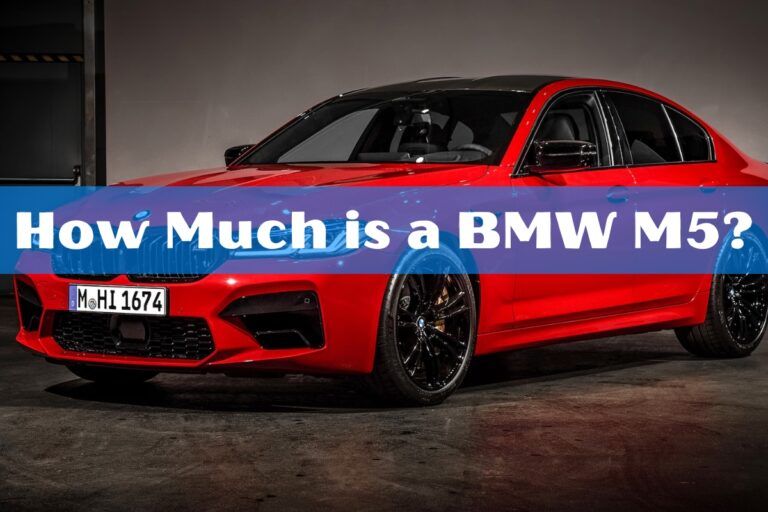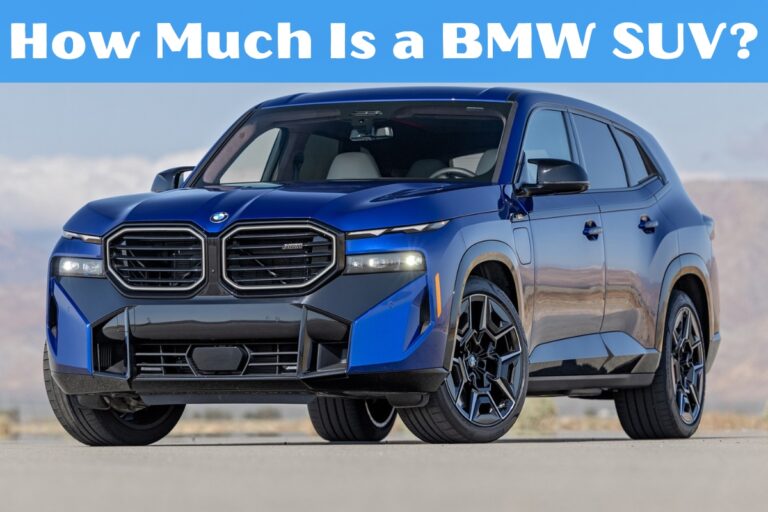How Much Does the BMW i7 Electric Sedan Cost?
The BMW i7 is the German automaker’s first-ever all-electric flagship sedan. As a cutting-edge luxury EV, the i7 comes with a premium price tag that reflects its advanced technology, upscale features, and impressive performance capabilities. In this comprehensive guide, we’ll dive deep into the costs associated with owning a BMW i7, covering everything from trim level pricing to potential incentives and long-term ownership expenses.
BMW i7 Trim Levels and Pricing
The BMW i7 is available in three distinct trim levels, each offering a unique combination of power, range, and features. Let’s take a closer look at the pricing and key specifications of each model:
Base eDrive50 Trim
The entry-level eDrive50 trim starts at an MSRP of $105,700 (excluding destination fees and potential incentives). Despite being the base model, the eDrive50 is far from basic, boasting a rear-mounted electric motor that delivers 449 horsepower and 479 lb-ft of torque. According to EPA estimates, this trim can achieve a range of up to 321 miles on a single charge.
Mid-range xDrive60 Trim
Stepping up to the xDrive60 trim will set you back $124,200 (MSRP). This model features an advanced all-wheel-drive system with dual electric motors (one on each axle) that combine to produce 536 horsepower and 549 lb-ft of torque. The xDrive60’s estimated range is slightly lower than the eDrive50 at 298-317 miles, depending on wheel size and other factors.
Top-of-the-line M70 Trim
At the top of the i7 lineup is the performance-oriented M70 trim, with an MSRP of $168,500. This range-topping model packs a serious punch, courtesy of an upgraded rear-axle motor that helps generate a staggering 650 horsepower and up to 811 lb-ft of torque (with the M Sport Boost function enabled). Despite its impressive power output, the M70’s estimated range is 274-291 miles.
Factors Affecting the Cost of the BMW i7
While the MSRP provides a baseline for the i7’s pricing, several factors can influence the final cost of owning this luxury EV. Here are some key considerations:
Battery Size and Range
The i7’s battery capacity and range play a significant role in determining its price point. Generally, models with larger battery packs and higher range ratings command higher MSRPs. For instance, the longer-range eDrive50 carries a lower starting price compared to the shorter-range (but more powerful) M70 trim.
Performance and Acceleration
As with most high-end vehicles, the i7’s performance capabilities directly impact its pricing. The range-topping M70, with its 650-horsepower output and blistering acceleration (0-60 mph in an estimated 3.5 seconds), demands a premium over the less powerful eDrive50 and xDrive60 trims.
Optional Packages and Upgrades
Like most luxury vehicles, the BMW i7 offers a wide array of optional packages and upgrades that can quickly inflate the final cost. Some popular options include the Premium Package (adding features like heated front seats and a premium audio system), the Executive Package (with amenities like rear massaging seats and a rear entertainment system), and various exterior and interior design upgrades.
How the BMW i7’s Pricing Compares to Competitors
To better understand the i7’s value proposition, it’s helpful to compare its pricing to other luxury electric sedans on the market:
Mercedes-Benz EQS
The Mercedes-Benz EQS is arguably the i7’s closest competitor, with pricing ranging from around $103,000 to $125,000 (depending on trim level and options). While the EQS undercuts the i7 in terms of base pricing, its top trims can approach or even exceed the cost of the i7 M70.
Tesla Model S
Tesla’s flagship Model S sedan starts at around $104,000 for the base Dual Motor All-Wheel Drive variant, with the range-topping Tri Motor Plaid+ model commanding a hefty $138,000 price tag. While the Model S offers impressive performance and range, it lacks some of the luxury appointments and advanced features found in the i7.
Other Luxury Electric Sedan Rivals
Other luxury electric sedans like the Lucid Air, Porsche Taycan, and Audi e-tron GT can also serve as pricing benchmarks for the i7. However, their pricing structures and feature sets can vary significantly, making direct comparisons more challenging.
Cost of Ownership: Charging, Maintenance, and More
Beyond the initial purchase price, it’s crucial to consider the long-term costs associated with owning an electric vehicle like the BMW i7:
Charging Costs and Infrastructure
One of the most significant ongoing expenses for EV owners is charging. While the i7 can be charged at home using a Level 2 charger (potentially qualifying for incentives or rebates), public charging stations may incur additional fees. BMW does offer complimentary 30-minute charging sessions at Electrify America stations for the first three years of ownership.
Maintenance and Repair Costs
Compared to conventional gasoline-powered vehicles, electric cars like the i7 generally require less maintenance due to fewer moving parts and fluids. However, repairs and replacements for components like the battery pack can be costly. BMW offers a comprehensive warranty coverage for the i7, including an 8-year/100,000-mile warranty on the battery pack.
Potential Tax Credits and Incentives
Depending on your location and income level, you may be eligible for various federal, state, and local incentives when purchasing an electric vehicle like the BMW i7. These incentives can potentially offset a significant portion of the i7’s upfront cost, making it more affordable in the long run.
Conclusion
The BMW i7 is undoubtedly a premium luxury sedan that commands a premium price tag, with MSRPs ranging from $105,700 for the base eDrive50 to $168,500 for the high-performance M70 trim. While these prices may seem steep at first glance, the i7 offers cutting-edge technology, impressive performance, and a range of upscale features that justify its positioning as a flagship electric vehicle from the renowned German automaker.
It’s important to note that the i7’s pricing is comparable to other luxury electric sedans in its class, such as the Mercedes-Benz EQS and the Tesla Model S. However, the i7 distinguishes itself with its seamless integration of advanced technologies, luxurious appointments, and a driving experience that upholds BMW’s reputation for performance and handling.
When considering the purchase of a BMW i7, potential buyers should carefully evaluate their specific needs, preferences, and budget constraints. It’s crucial to factor in not only the upfront costs but also the long-term ownership expenses, such as charging costs, maintenance, and potential incentives or tax credits that may be available in their respective regions.






